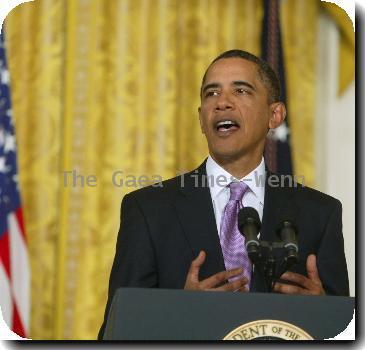Selection of new site for 9/11 trial faces legal, political and logistical challenges
By David B. Caruso, APSaturday, January 30, 2010
Many obstacles to choosing a site for 9/11 trials
NEW YORK — Now that President Barack Obama’s administration is considering moving the Sept. 11 trial away from a courthouse in Manhattan, the question is: Where to?
Legally, the Justice Department could choose a variety of locations in which to bring an indictment. There is no requirement that the trials of professed Sept. 11 mastermind Khalid Sheikh Mohammed and others be held in the places where the most victims died, experts said.
Politically, though, the administration faces a bigger challenge.
Though the Justice Department has yet to publicly back down from its plan to try the suspects in New York City, officials have acknowledged that other sites are under consideration. But a growing number of lawmakers in the president’s own party say they would rather not have the proceedings in their states.
Opponents include Democrats such as Virginia Sen. Jim Webb, who was among five lawmakers last week who urged Attorney General Eric Holder to reverse his decision to try Mohammed and other conspirators in civilian courts, and U.S. Sen. Chuck Schumer of New York, who said a local trial would be too disruptive, whether in Manhattan or upstate.
The same held true for top Democrats in Pennsylvania, talked about by some as a potential site because of the crash of hijacked United Airlines Flight 93 near Shanksville, Pa.
New York City Mayor Michael Bloomberg “has given good reasons why the trial should not be held in New York City and that same reasoning would apply for Pennsylvania as well,” said U.S. Sen. Arlen Specter. Bloomberg has cited the costs of securing the Manhattan courthouse as an impediment to hosting the trial.
A congressional aide said Saturday that the Obama administration is proposing a $200 million fund to help pay for security costs in cities hosting the trials, to be included in the president’s budget being released Monday. The aide spoke on condition of anonymity because the budget hasn’t been announced.
A spokesman for Pennsylvania Gov. Ed Rendell said Saturday that the proposed $200 million would help assuage some of the governor’s concerns about cost, but not safety.
Other likely candidates include Alexandria, Va., which hosted the 2006 sentencing trial of 9/11 plotter Zacarias Moussaoui, or a new high-security courthouse in an industrial area in Newport News, Va., not far from a major naval station.
Alexandria city officials remained opposed Saturday to hosting a terror trial, citing worries over security and inconveniences for the thousands of people who live and work around the federal courthouse.
“Even with any special funding, we’re still opposed to it,” city spokesman Tony Castrilli said.
Michael Tigar, a Duke Law School professor who represented Terry Nichols in the trial of the 1995 Oklahoma City bombing, said if prosecutors charge suspects like Mohammed with being part of a conspiracy to attack the U.S., they could bring the case anywhere the hijackers traveled as they hatched their plan.
That includes Florida, where they trained to fly airplanes; Boston, where some boarded a jet; San Diego, where several of them lived; or the attack targets.
“The government has extensive choices of venues within the United States,” Tigar said.
There is no rule that trials have to be held in a courthouse, either, rather than some other building such as a prison or a military base, he said.
Republicans have argued that any trials should be conducted by military commission and be held outside the U.S., preferably at the U.S. detention facility in Guantanamo Bay, Cuba.
In some ways, the federal courthouse complex in downtown Manhattan seemed a natural choice. Security there is already tight. The prison and courthouse stand side by side and are connected by a tunnel in a complex that is already mostly closed off to vehicle traffic. The district includes some of the country’s most seasoned terrorism prosecutors.
Plans to hold the trial there, however, began unraveling after New York’s police commissioner, Ray Kelly, said the trial would mean a big expansion of the iron circle around the courthouse.
His plan was both extraordinarily expensive — Bloomberg pegged it at $200 million per year — and disruptive enough that local businesses and residents revolted.
By backpedaling, the administration might have made it more difficult to follow through with relocating the trials, said Patrick Rowan, once the top counterterrorism official in President George W. Bush’s Justice Department.
“If it’s too risky to hold a major terrorism trial in downtown Manhattan, then they’re going to face the same argument from civic leaders in other metropolitan areas,” Rowan said.
Associated Press writers Devlin Barrett, Andrew Taylor and Brett Zongker in Washington, Colleen Long and Tom Hays in New York and Ron Todt in Philadelphia contributed to this report.
Tags: Barack Obama, Municipal Governments, New York, New York City, North America, Pennsylvania, United States, Virginia





